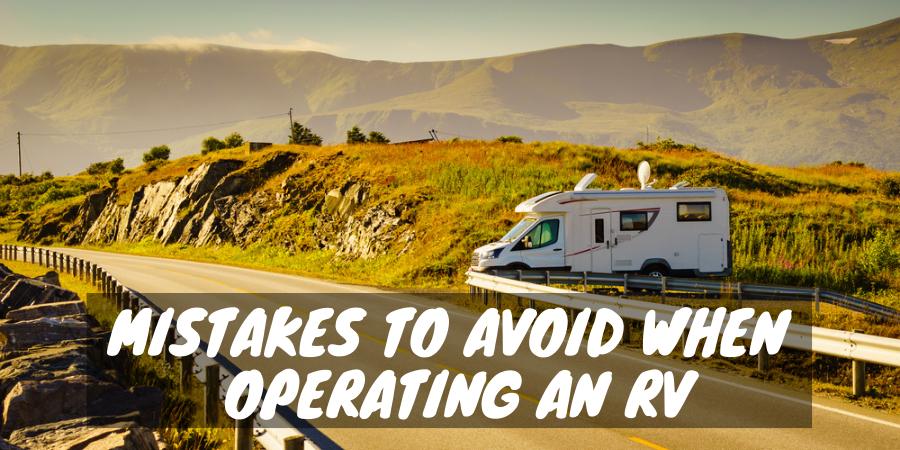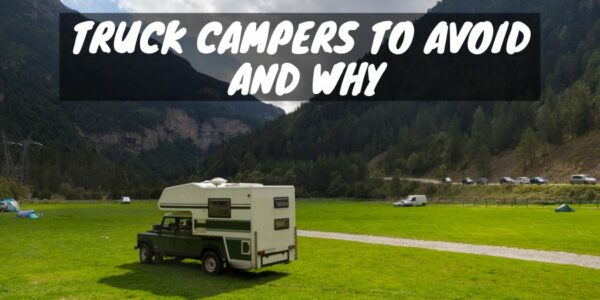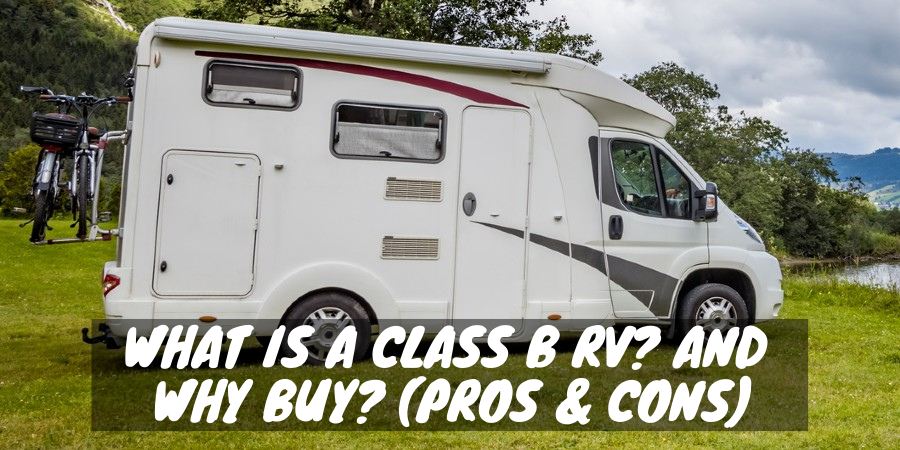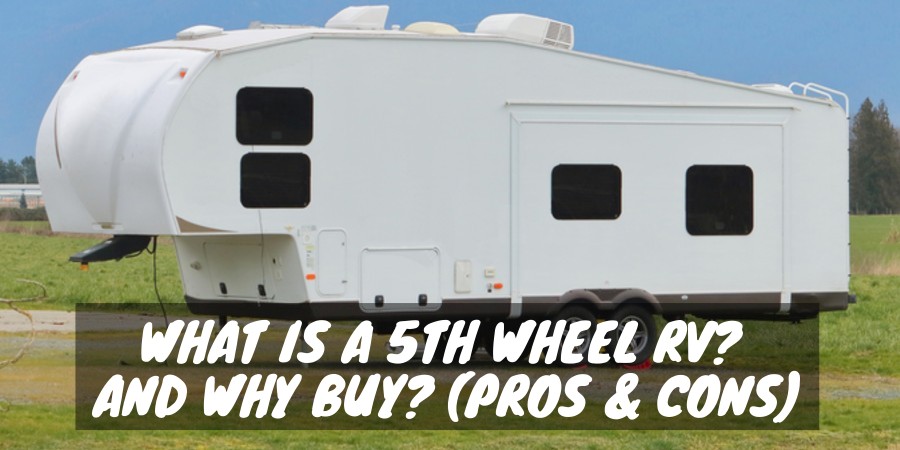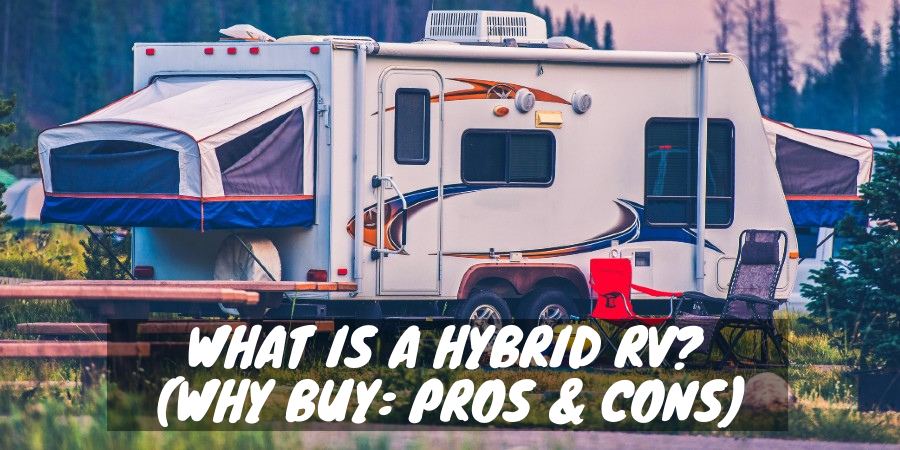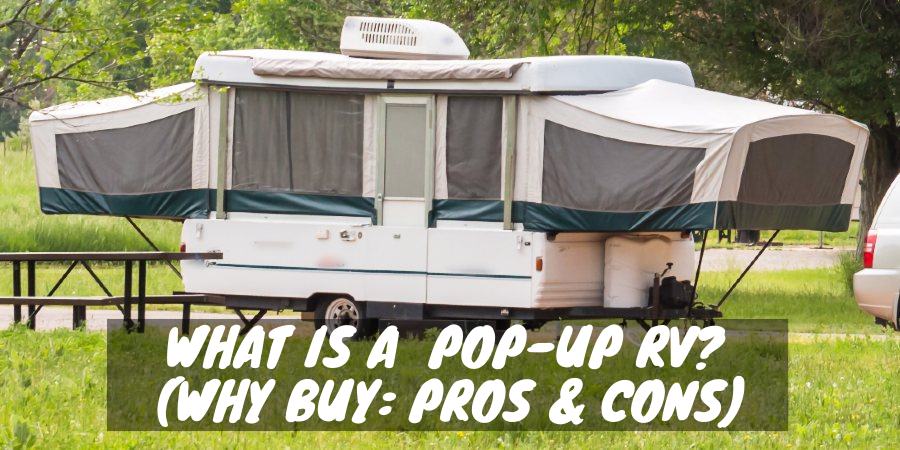You’ve been hearing a lot about how great the RV experience is the past year from everyone. Even on your work video conference calls, your co-workers talk about the great times they had when they rented their RV (except Jerry, who doesn’t like anything). If you’re ready to give it a try, here are 13 mistakes you’ll want to avoid when operating an RV for the first time.
Many first-timers start with peer-to-peer RV rentals from Outdoorsy, RVezy, RVshare, or other companies. In fact, RV rental companies saw rentals soar between 1,200 and 1,600% in 2020. Even first-time RV buyer sales jumped to between 50 and 80%. Under normal market conditions, this segment averages around 30% of the overall RV consumer base.
When you first get your RV, whether it’s a rental or purchase walkthrough, you’ll likely only retain 20% of everything they tell you.
We’ll show you the most common mistakes that first-timers make and how to prevent them proactively. And if the problem does occur, we’ll even show you the best way to solve it.
RV Troop Tip on Maintenance and Repair: RV owners can solve over 90% of all RV operations, maintenance issues, and repairs without professional assistance. Bookmark the RV Troop website to keep up with the latest DIY how-to articles or search YouTube for walkthroughs.
How Do You Prepare To Live in a Camper?
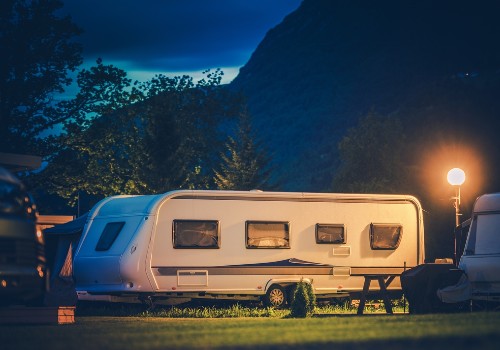
Mind Your Tire Pressure
The safest RV to drive is one that matches well to your tow vehicle, uses the right hitch, sway equipment, and has the correct tire pressure. The proper tire pressure information is found on the tire itself, close to the rim. All tire manufacturers embed the data into the tire for safety purposes. Knowing your tire pressure prevents losing control of your coach due to a blowout.
You can pick up electronic tire pressure monitors for under $50. The sensors replace your tire fill caps and relay the information to the primary device. Some companies make Bluetooth versions that connect to your mobile device.
Become Fluent in Weight Vocabulary
Suppose your RV surpasses the maximum weight capacity (gross vehicle weight rating or GVWR), and you’re towing it at your vehicle’s limit. In that case, you’re in the worst camper trailer towing situation possible. If you do get into an accident, your insurance company won’t pay because exceeding the safety ratings puts you out of compliance with your policies.
RV and automakers must publish the maximum safe weights on every vehicle they make. To avoid RV dangerous conditions, learn how to load your coach correctly and match your trailer to a tow vehicle. You can become fluent in RV weight factors through our discussion on the topic.
Car Is to Google Maps, as RV Is to…
If you’re having SAT/ACT flashbacks, don’t worry, we’re not grading you. The best GPS app for RVs isn’t the same one you use for your car, truck, SUV, or minivan. If you’ve ever driven through a major city, you can understand it’s hard enough with your passenger vehicle. Trying to survive something like the Washington D.C. Beltway with a motorhome or travel trailer is nerve-wracking (trust us, we know from experience).
You want to use apps designed for RV travel like RV Trip Wizard, CoPilot RV, and others. The systems navigate around city traffic, low bridges, and other road conditions that aren’t suited for RVing. The apps point out nearby campgrounds, RV-friendly gas stations, and other points of interest. Before you hit the road, plan your stops and things you want to see on your journey.
Is It Safe to Travel in an RV?
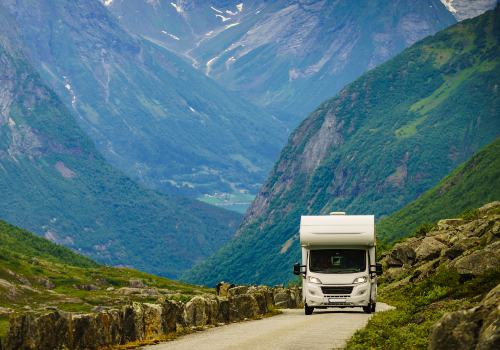
Running On Empty
As you’re “Looking out at the road rushing under [your] wheels,” as Jackson Browne sang it, don’t forget to check your fuel gauge. Always fill up when you have a quarter tank left. There are two reasons for this. The first is safety: you could drive over fifty miles before you find another RV-friendly gas station.
The second reason has to do with your motorhome’s built-in generator. If you’re running the gennie, so your family can watch TV in your RV while driving, it will automatically shut off when your fuel tank reaches a quarter tank. The shut-off feature is a safety measure to give you enough fuel to make it to the closest gas station.
The 4 Essential Kits of RVing
There are four kits every RVer should have onboard their coach. You want them fully stocked. If the kits are missing items, you’ll want to purchase those necessities separately. You never know when you’ll need them on the road or at the campsite. The essential four kits include:
- First Aid Kit
- Roadside Hazard Kit
- Survival Kit
- Tool Kit
For a detailed explanation of what each kit should contain, check out our discussion on essential RV accessories. People are always grateful to have the kits when they need them, but one of the most prominent mistakes even veterans make is not restocking them. It’s also wise to create additional kits based on your specific needs, like an emergency diaper bag or pet care kit.
Can I See You? Lights and Reflectors May Be Required
The Department of Transportation (DOT) has specific guidelines on what lights and reflectors must be on your RV. If one of these lights is broken, burnt out, or missing, law enforcement can fine you for being out of compliance. Replacing the lights or reflectors are inexpensive. The lights you need on your trailer include:
- Taillights
- Brakelights
- License Plate Lights
- Turn Signals
- 2-3 Clearance Lights
- 2 Side Markers
- 2 Reflectors
Every state has its own requirements that can vary based on length. The requirements we pointed out above are a conglomerated average. RV manufacturers build their coaches to adhere to all state and federal laws. You can use the AAA link we provided or go to the state’s DOT website if you have any questions or concerns.
Got Chains?
Another DOT law at the federal level is safety chains on the hitch. Today’s tow hitches are very secure. To keep your RV from rocking, you also have sway control equipment to make your camper more sturdy as you travel. If the hitch fails, the safety chains keep your towable RV from totally disconnecting from your vehicle.
If the safety chains are too long, you can wrap them around the trailer’s hitch, so they don’t drag on the pavement. The chains will give you enough control to turn on your hazard lights, slow down and get to the side of the road. The hitch receiver that connects to your ball hitch is the end of your steel chassis. Some road rash scraping won’t alter the integrity of the receiver.
What to Know Before Living in a Camper
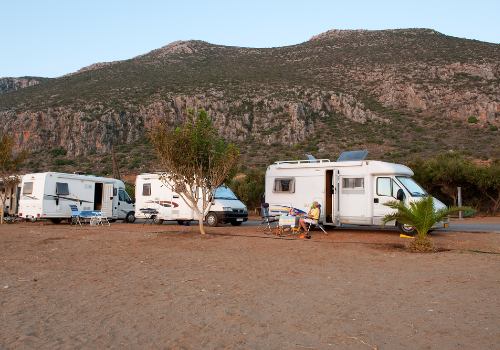
RVs Need PPEs Too
Motorhomes and travel trailers need personal protection equipment (PPE) to keep their internal systems working efficiently and protect them from contamination. While campgrounds do their best to keep their utilities running, things fall through the cracks. Travel trailers with the best resale value always use electric surge protectors, water filters, and water pressure, regulators.
Using jack pads, wheel chocks, and other stabilizing equipment to level your coach also falls under the PPE category. If your RV isn’t level, evaporator refrigerators and other components won’t run efficiently.
Use your components correctly. Stabilizer jacks are only for stability. They can’t handle the burden of lifting your RV. The tongue jack (the one by the hitch) raises or lowers the RV. If you need to adjust your motorhome height, stack Lego®-like jack pads in front of your wheels and then carefully drive onto them.
Avoiding the Worst RV Problem
The worst RV problem isn’t the most expensive, the most technical, or some rare issue that pops up once in a blue moon. It’s the most common travel trailer problem many first-timers ask. With the proper maintenance and know-how, it’s also one of the most avoidable issues: the dreaded black tank.
First off, keep your black and grey tank valves closed. The system works on gravity, so you need the water’s weight in the tank to create water flow. Empty your tanks every 4-6 days, depending on usage. Empty the black tank first, then the grey. The soaps and other things that go down your kitchen and bathroom sinks will flush out your sewer hose from the black tank particles.
Only use toilet paper made for RVs because residential versions don’t dissolve. Residential TP is the number one reason RV toilets get clogged up. We recommend using bio-enzyme toilet treatment versus the blue formaldehyde products. The enzymes are eco-friendly, septic tank safe, and are better for your black tank’s longevity.
Scout Your Campsite in 3 Dimensions
Before you pull into your campsite, get out of your vehicle and walk around your assigned space. Your goal is to find the most level section of ground. If your RV’s wheel or stabilizer jack ends up in a small hole or a rock sticking up, leveling will be a nightmare.
Want to Connect With a Community of Over 1,078 RV Enthusiasts?
You also want to look up. Tree branches will scratch your sidewalls, puncture seams, and possibly damage your roof. It also gives “Evil Squirrels” access to run around on the roof, driving your dogs nuts. More importantly, if the tree branch hits it just right, whatever satellite or internet antenna equipment you have up there could get knocked off.
How Do I Prepare for an RV Trip Home?
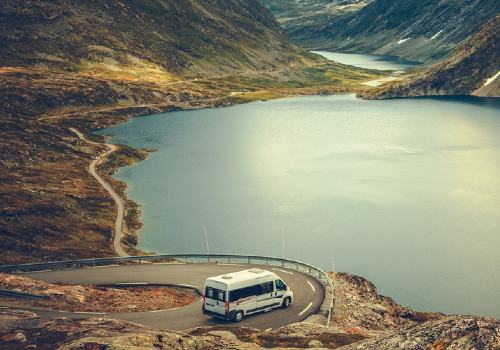
Mold and Mildew
Softshell pop-ups and hybrid travel trailers have come a long way in moisture-resistant technology. Yet newbies underestimate the damage it can do. Always try to pack up your camper when the soft material is dry. Experts even recommend airing out the refrigerator too. It shouldn’t take too long for the canvas or vinyl fabric to dry up on a sunny day.
When asked what’s the worst travel trailer repair they see at the beginning of the camping season, RV service managers will tell you stories of softshell campers stored wet over the off-season. When owners open the trailer up for the first time, the fabric is pock-marked with fungus, mildew, and mold. If you have to break camp under wet conditions, make sure you open it back up at home to dry it out.
There’s No Speed Record for Fastest Camp Break Down
If you woke up late and you have about an hour before check out, don’t panic. If you go over by a few minutes, you can call the front office and let them know what’s going on. More than likely, they’re busy checking everybody else out. This doesn’t mean you can take advantage of the system, but it gives you time to break camp correctly.
Use a breaking camp checklist, so you don’t forget anything. The night before, pack up some non-essentials, like the outdoor furniture, to get ahead of the game. Once you’re all packed up, do a final walk around the campsite and your RV, making sure you didn’t miss something. You see people who leave their fuel door open on their passenger cars, don’t be that RVer that does something similar.
Winterizing in Arizona Is a Thing
The term “Winterize” refers to preparing your RV for storage when it’ll sit dormant for an extended period. In most cases, this happens in the Snowbelt states during the winter months, hence, “winter.” Those who plan to join the snowbird RV lifestyle need to winterize their RV during the summer.
The antifreeze fluid prevents freezing and keeps your RV’s plumbing and components from drying out. The water heater, water pump, and PEX piping become brittle and will crack open when introducing water back into the system. Learn more for a complete discussion on winterization and an easy step-by-step guide on preparing your RV for storage.
Conclusion: Making the Best Out of a Bad Situation
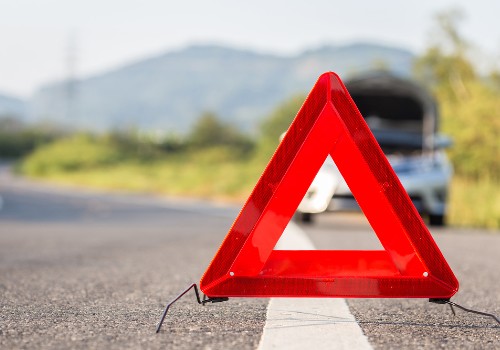
What’s the difference between a mistake and a hard lesson? Hard lessons are mistakes you make once that you learned from and never make again. Genuine mistakes are those lessons you didn’t learn from and do over again.
Learning the RV life is like chess. You can learn the basics in hours, but it takes a lifetime to perfect. Even veterans will mess up from time to time. Many campfire discussions include stories about how RVers made a mistake and how they recovered. The recovery part of the story is either endearing or hilarious. It’s okay to laugh with them.
You’re going to find that your best camping stories are those times where you had to improvise a solution. As you get better at it, things will stay more on track. As long as no one gets hurt, nothing gets seriously damaged, and it doesn’t involve the sewer hose, you’ll be just fine.
Bookmark RV Troop to learn the best tips and tricks about the RV lifestyle. We gather our data from long-time veterans, experts in the field… and stay current with RV manufacturer releases so you don’t have to.
Welcome to the RV Lifestyle!
"Man cannot discover new oceans unless he has the courage to lose sight of the shore."
-- Andre Gide

